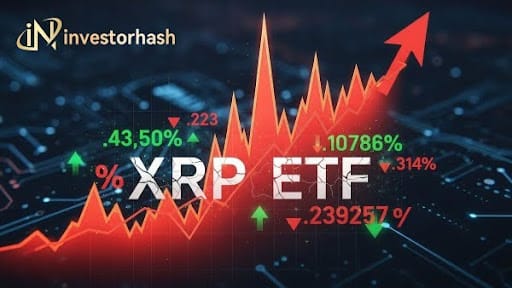Winklevoss Twins Take Gemini Public Following Circle and Bullish Success

Gemini Space Station has filed with the US Securities and Exchange Commission to list its Class A common stock on the Nasdaq Global Select Market under the ticker GEMI. According to Cointelegraph, the crypto exchange and custodian founded by Cameron and Tyler Winklevoss submitted its filing on Friday.
The IPO will mark the first time Gemini shares are publicly traded. The offering will be led by a syndicate including Goldman Sachs, Morgan Stanley, and Citigroup. Post-offering, Gemini will maintain a dual-class share structure with Class A stock carrying one vote per share and Class B stock carrying ten votes. The Winklevoss twins will retain all Class B shares, ensuring majority voting control.
Founded in 2014, Gemini operates a regulated crypto exchange, custody service, and blockchain-based products. These include the US dollar-backed Gemini Dollar stablecoin and a crypto-rewards credit card. The company faces expanding losses despite the IPO announcement, with 2024 posting $142.2 million in revenue against a $158.5 million net loss.
Why This IPO Matters for Crypto Markets
The filing comes as Gemini struggles with deteriorating financial performance. Losses in the first half of 2025 reached $282.5 million on just $67.9 million in revenue, according to The Block. Cash and cash equivalents fell from $341.5 million at the end of 2024 to $161.9 million by mid-2025.
The IPO represents a critical lifeline for the exchange as operational costs continue to strain liquidity. CNBC reports the announcement follows the SEC wrapping up its investigation into Gemini in February without recommending enforcement action. The company also settled a $5 million case with the Commodity Futures Trading Commission in January.
Gemini's move comes during Trump administration policies that favor crypto businesses. Cameron and Tyler Winklevoss supported Trump's reelection bid and have backed crypto-focused political action committees. We previously covered how traditional financial institutions were exploring crypto IPOs, with companies like Blockchain.com considering public offerings as early as 2021.
Industry Implications for Digital Asset Companies
Gemini joins a surge of crypto companies pursuing public listings amid favorable regulatory conditions. Circle's blockbuster IPO in June raised $1.1 billion and closed its first day 167% above the $31 issue price. Crypto exchange Bullish also made a strong debut, with shares surging 83.8% on the first day to close at $68, according to Bloomberg.
These successful debuts demonstrate growing institutional appetite for regulated crypto exposure. The Trump administration's pro-crypto stance has created renewed confidence in digital asset markets, with the crypto market value surpassing $2 trillion earlier this year. Gemini's IPO would make it the third publicly-traded crypto exchange in the US, following Coinbase and Bullish.
However, Gemini faces unique challenges compared to its predecessors. Unlike Circle's stable revenue model from stablecoin reserves, Gemini depends heavily on trading volumes and crypto market conditions. The exchange must prove it can return to profitability while competing against larger rivals like Coinbase and Binance. Success could open doors for other struggling crypto firms, while failure might dampen enthusiasm for future digital asset IPOs.




